Search Results
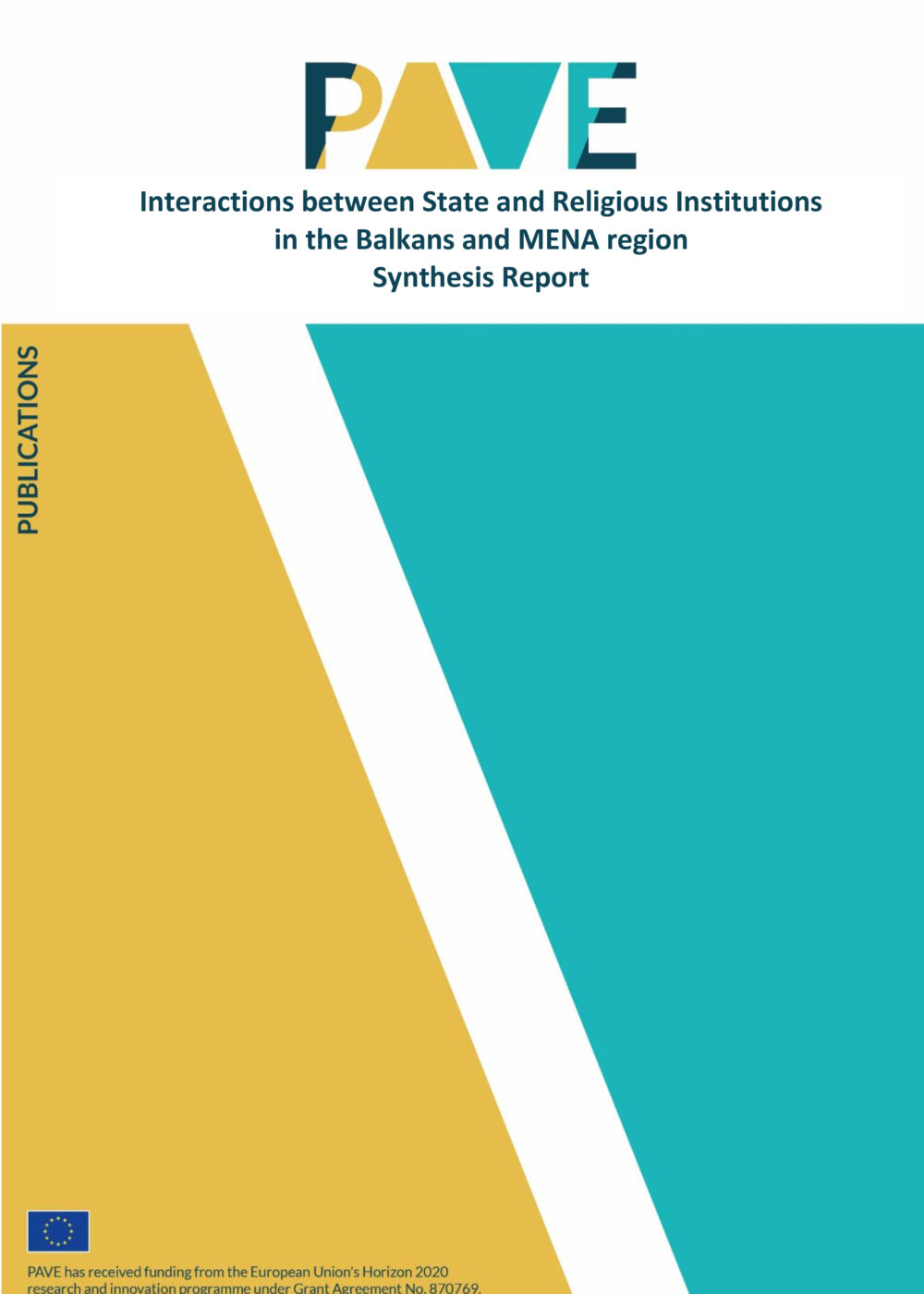
PAVE synthesis reportInteractions between states and religious institutions in the Balkans and MENA region
Socio-political community dynamics in Bosnia and Herzegovina, Serbia, as well as Iraq, Lebanon, and Tunisia are impacting violent extremism, while at the same time being impacted by violent extremism. In this report, community vulnerability and resilience against violent extremism are explored by assessing the role of the absence or dysfunctions of state and religious authority figures.
- Year 2022
- Author(s) Marie Kortam
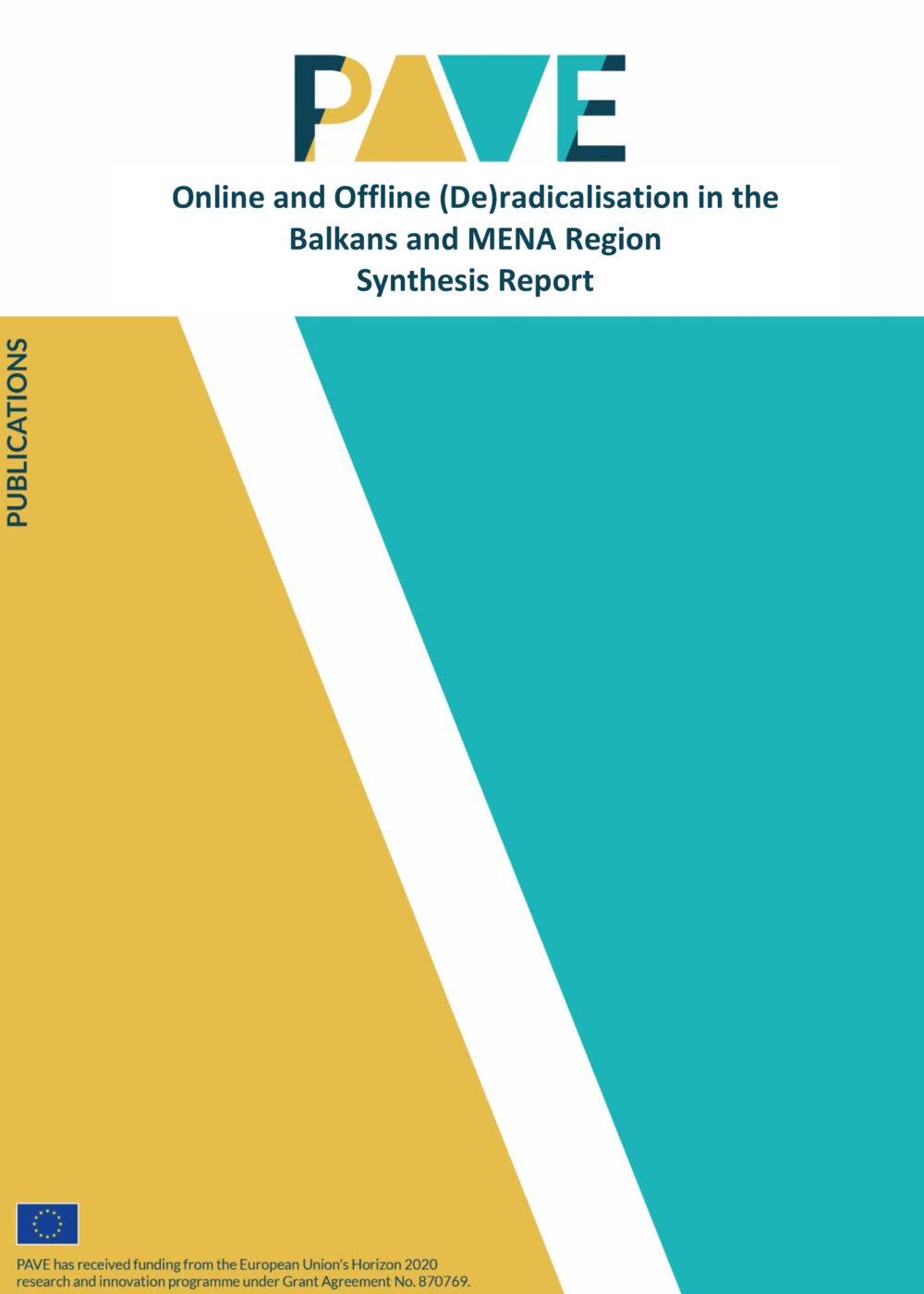
PAVE synthesis reportOnline and offline (de-)radicalisation in the Balkans and MENA region
This report provides a synthesis of studies on vulnerability and resilience of communities to religious and ethno-political radicalisation in the Western Balkans and MENA region. It summarises findings relating to trends in ethno-political and religious extremism and online vs. offline dynamics of radicalisation.
- Year 2022
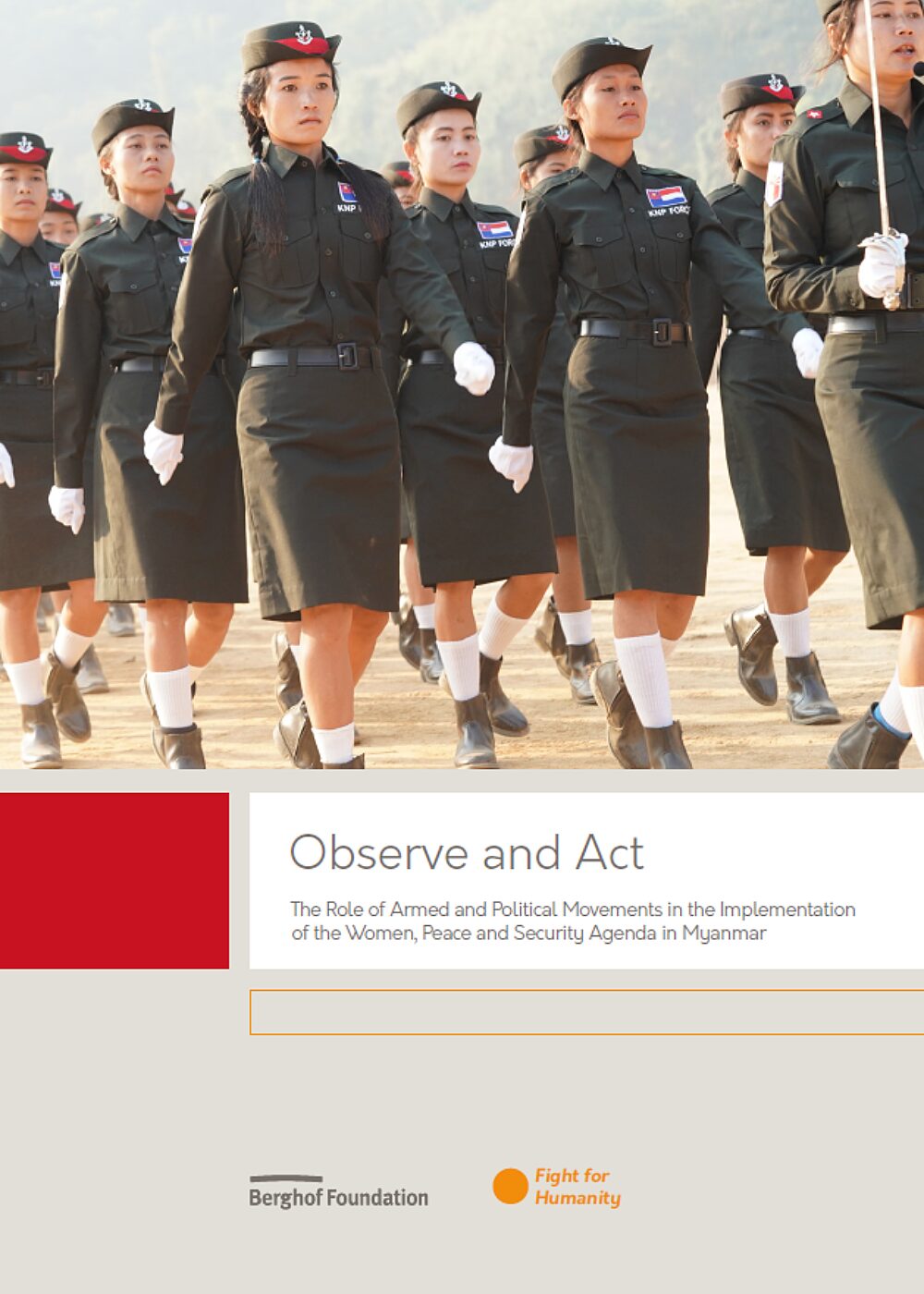
Observe and ActThe role of armed and political movements in the implementation of the Women, Peace and Security agenda in Myanmar
Berghof Foundation and Fight for Humanity, with the support of the German Federal Foreign Office, conducted a participatory research project examining the role that armed and political movements can play to implement UNSCR 1325. The research is based on the experiences of two Ethnic Resistance Organisations (EROs) from Myanmar: the Karenni National Progressive Party (KNPP) and the Karen National Union (KNU). One of the key findings is that the movements do engage with this agenda and have maintained a constant dialogue with women’s organisations in their territories. However, a conservative mindset still exists among parts of the leadership as well the general population. Consequently, measures to protect women in conflict areas are limited and mainly decided on by men, which reduce their effectiveness.
- Year 2022
- Author(s) Zin Mar Phyo, Véronique Dudouet, Ann-Kristin Sjöberg, Tilman Papesch, Katharina Schmitz, Nicolas Sion, Maw Day Myar, Thinzar Linn Htet

If people don’t feel safe, how can they play an active role in negotiating peace?Workshop on security guarantees in peace processes
How can peace facilitators put measures in place to protect all parties during peace processes? Véronique Dudouet co-facilitated a workshop on security guarantees.
- blog post 14 Dec 2022
- Author(s) Véronique Dudouet
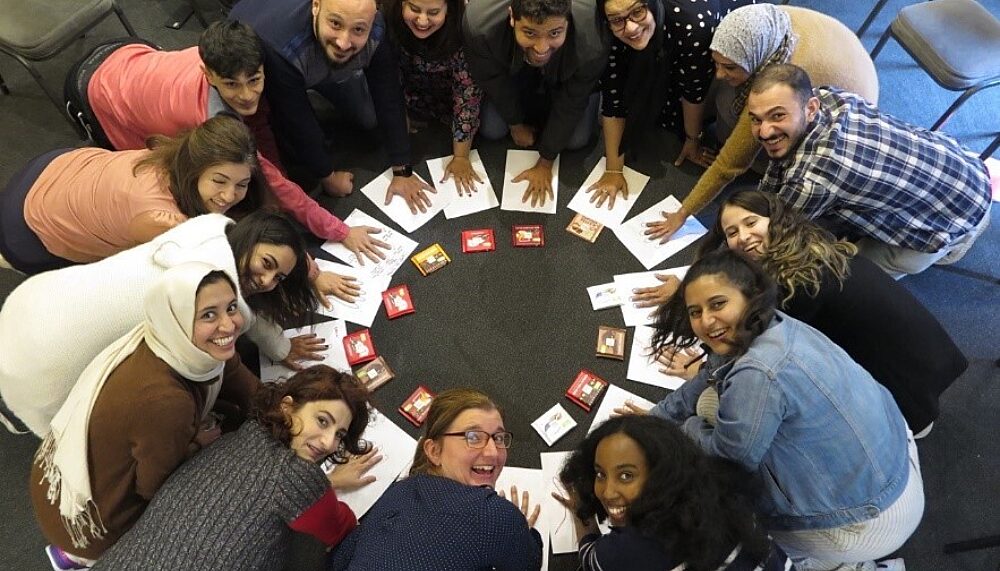
Next leaders for peace training
Through networking and mentoring, the Berghof Foundation seeks to empower the upcoming leaders of non-governmental organisations working for peace and dialogue.
- Past Project 2022 - 2022

Divided or united?The impact of war on Ukrainian national identity
Our consultant Mariia Levchenko interviewed civil society activists across Ukraine on the impact of war on Ukrainian national identity.
- blog post 20 Dec 2022
- Author(s) Mariia Levchenko
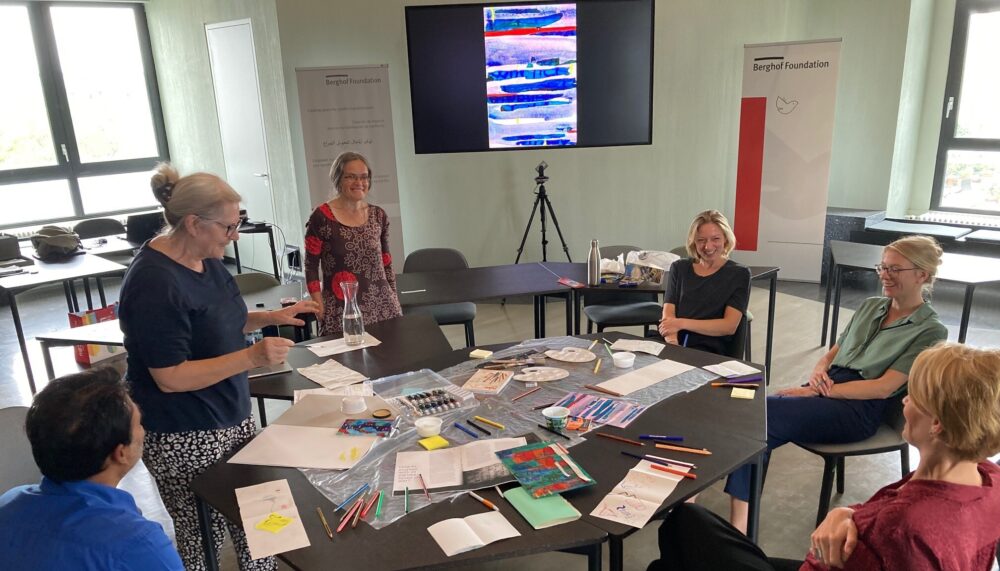
Transformation through artA talk between artists and peacebuilders
Inspired by a recent artist residency, Berghof colleagues discuss with painter Lynne Cameron how art creates space for conflict transformation.
- feature 28 Dec 2022
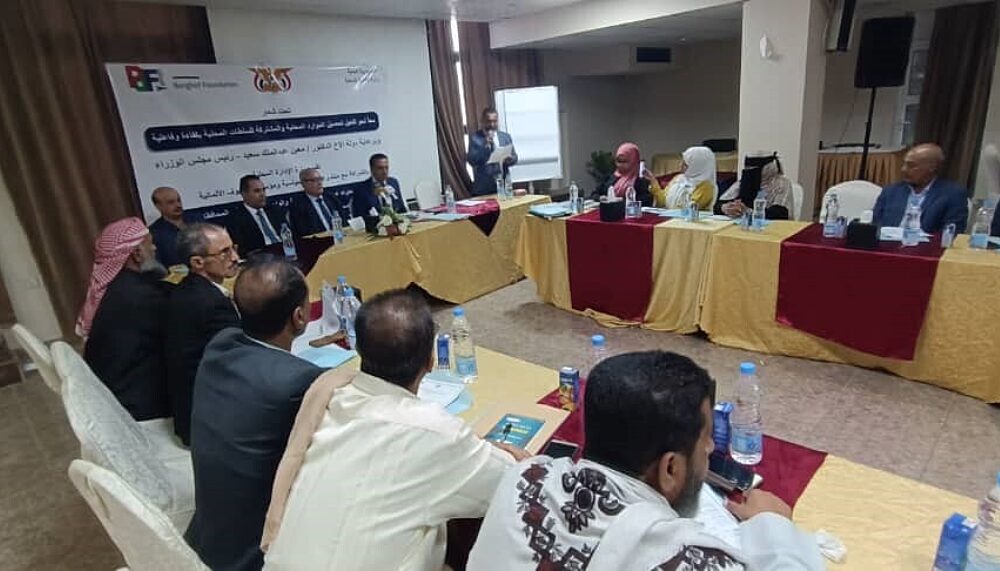
How to respond to local needs during war:An example from Yemen
For the first time in years, representatives of local authorities from several Yemeni governorates met to discuss how they can improve their response to local needs.
- blog post 21 Dec 2022
- Author(s) Hasan Shujaa
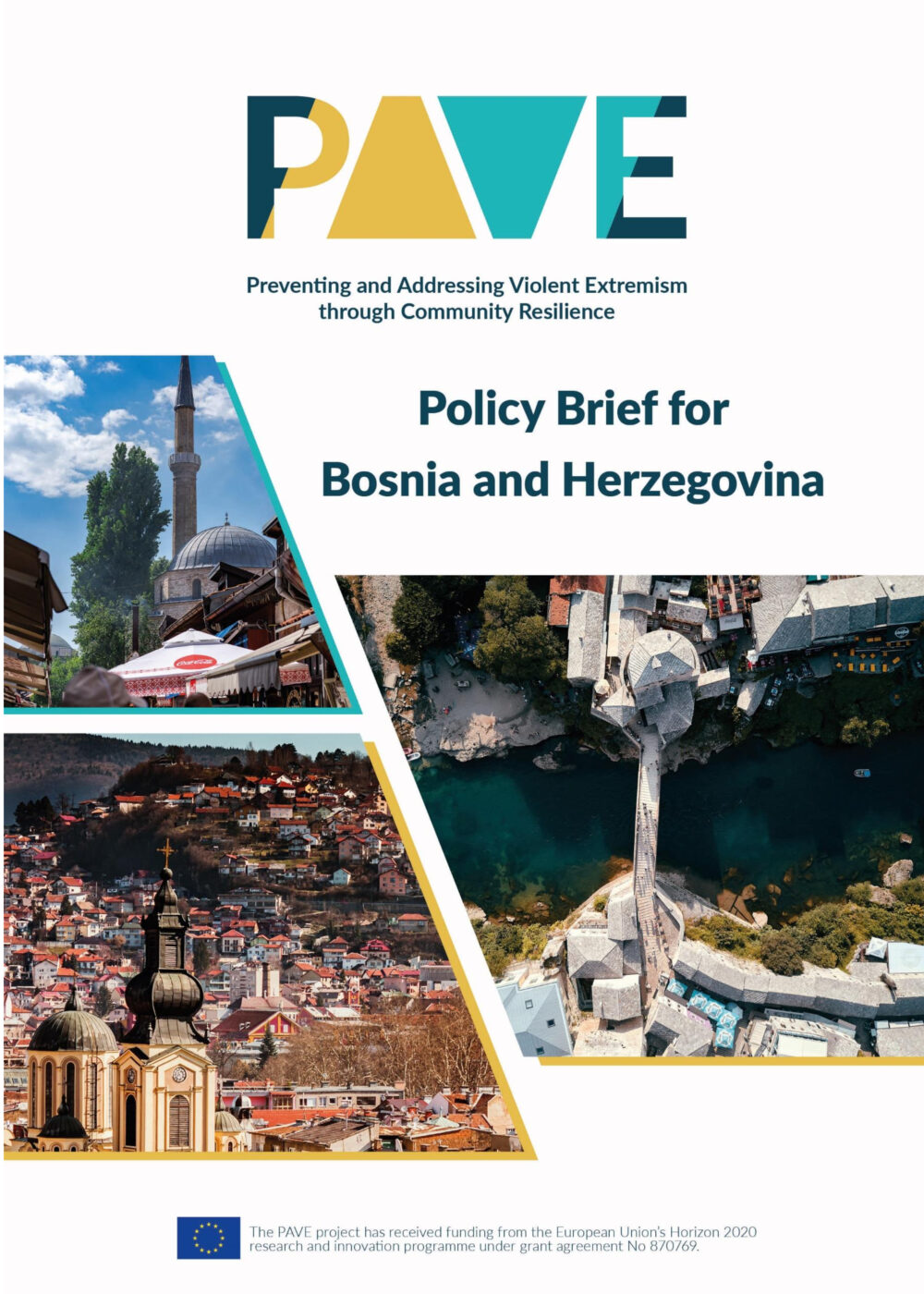
Policy brief on the prevention of violent extremism in Bosnia and HerzegovinaResearch results on how to foster community resilience from PAVE project
Read what government institutions and civil society organisations in Bosnia and Herzegovina, as well as international policy makers can do to make local communities more resilient against radicalisation and extremist ideologies.
- Year 2022
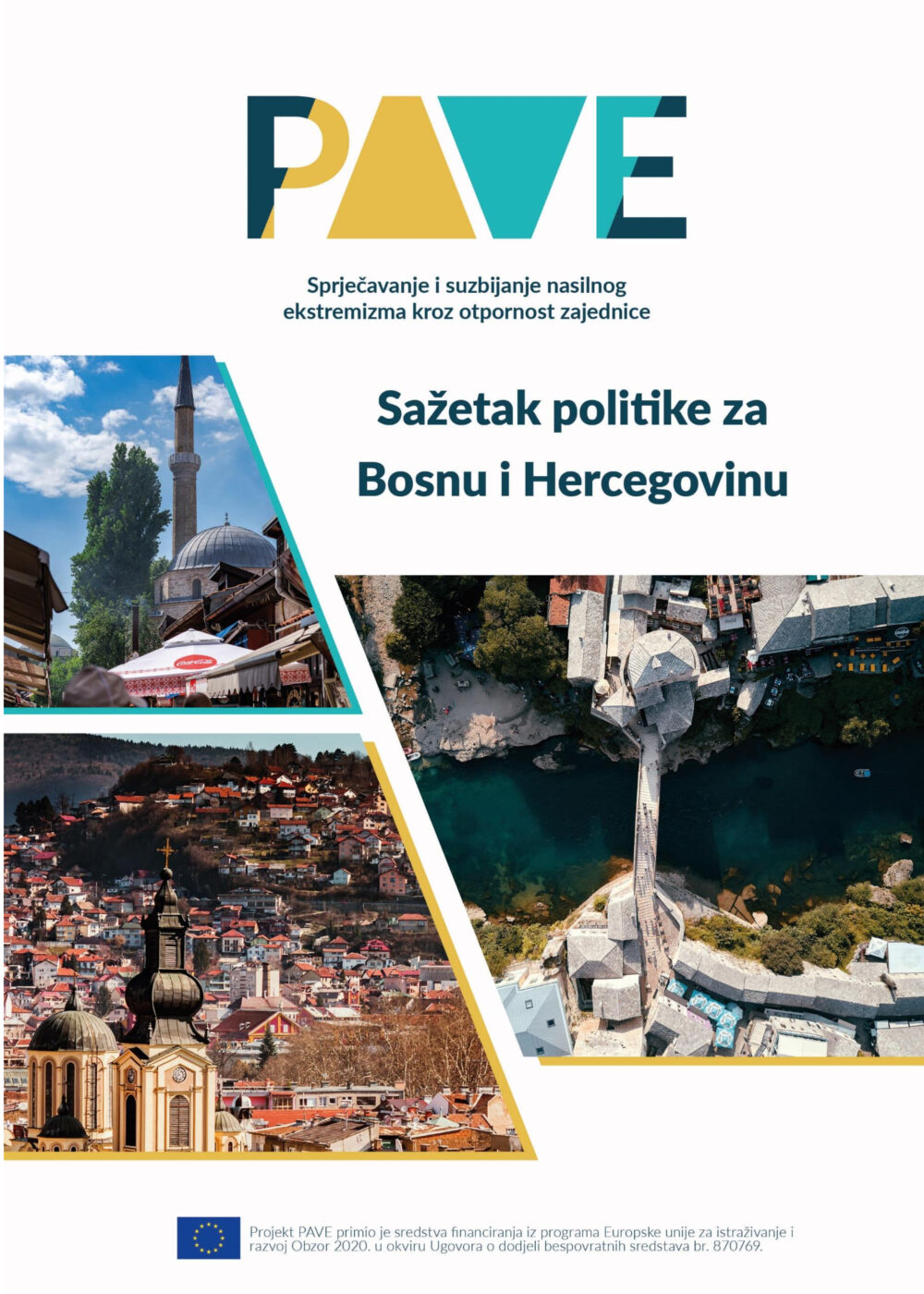
Sažetak politike za Bosnu i HercegovinuSprječavanje i suzbijanje nasilnog ekstremizma kroz otpornost zajednice
U okviru istraživačkog projekta PAVE prikuplja se znanje temeljeno na dokazima, koje se odnosi na trendove u području radikalizacije i nasilnog ekstremizma na Bliskom istoku i u Sjevernoj Africi (MENA), te na Zapadnom Balkanu.
- Year 2022